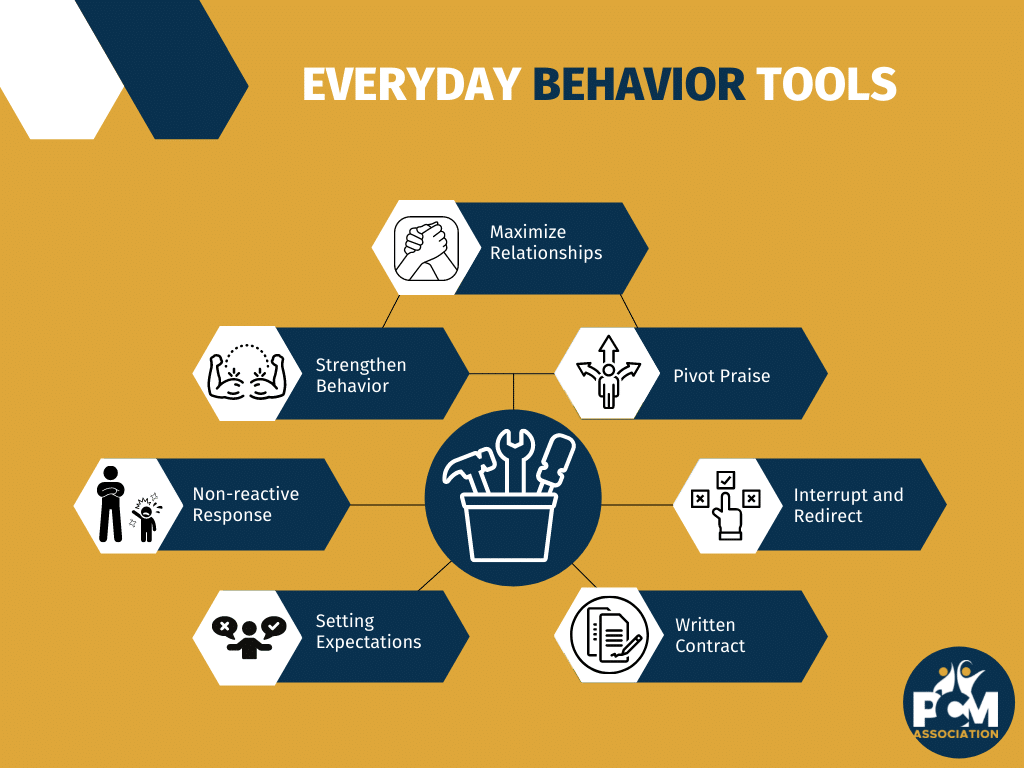
- This event has passed.
PCM: Everyday Behavior Tools (EDBT)
This training is an extension to Professional Crisis Management training, but can stand alone. It is perfect for anyone who works in schools or institutions with children, adolescents, and/or adults with intellectual/developmental disabilities, like parents, support staff, nurses, teachers, administration.
Although similar topics are discussed within PCM, our crisis management curriculum, we use a different approach to teach these skills in our EDBT curriculum. During the EDBT training, you will learn when and how to use these tools through role play sessions and are trained to fluency.
DRASTICALLY REDUCE PROBLEM BEHAVIORS WITH EVERYDAY BEHAVIOR TOOLS
Do your staff struggle to maintain a positive relationship with the individuals they work with?
What if your staff could really work together with their clients/students so that they do what they need to do? what if all your staff would look forward to working with your clients/students?
Are your staff having limited success in redirecting individuals away from potentially dangerous behaviors?
Would you like your staff to be able to de-escalate even the most challenging individuals they work with?
Do you think your staff’s interactions are contributing to higher levels of problem behavior?
What if their interactions resulted in calm, appropriate behavior?
ELEVATE ONGOING PROBLEM BEHAVIORS INTO GOOD INTERACTIONS
The way to drastically reduce problem behaviors is by using the seven tools from the Everyday BehaviorTools Toolbox

This map illustrates the choices available to the Everyday BehaviorTools Practitioner, and are selected based on the current behavior of the individuals they work with. The behavioral tools are hierarchal in nature. Strengthen Behavior and Maximize Relationships are to be used all day, every day when interacting with those you serve. From there, the remaining tools are intended for Practitioners to use in order to address on current, ongoing challenging behavior, or to prevent the continued use of frequent misbehavior. Applying these tools is critical to increasing appropriate behavior, preventing disruptive behavior, reinforcing expectations, and creating an overall positive culture.
Using the seven tools from the toolbox will make the individuals you serve run towards your staff rather than run away from them. You always hear, “I liked that teacher, and I learned a lot from them” but never “I hated that teacher, but I learned a lot from them.”
These seven tools are called ‘EveryDay BehaviorTools, because they should be used all the time, every day, and in every interaction, to help maintain clinical and positive relationships.
Depending on where an individual is along the Cycle of Crisis, these non-physical interventions will serve different functions. The tools are used as prevention strategies when an individual is in stable functioning, as de-escalation strategies when the individual is in pre-crisis, and as reintegration strategies during post-crisis.